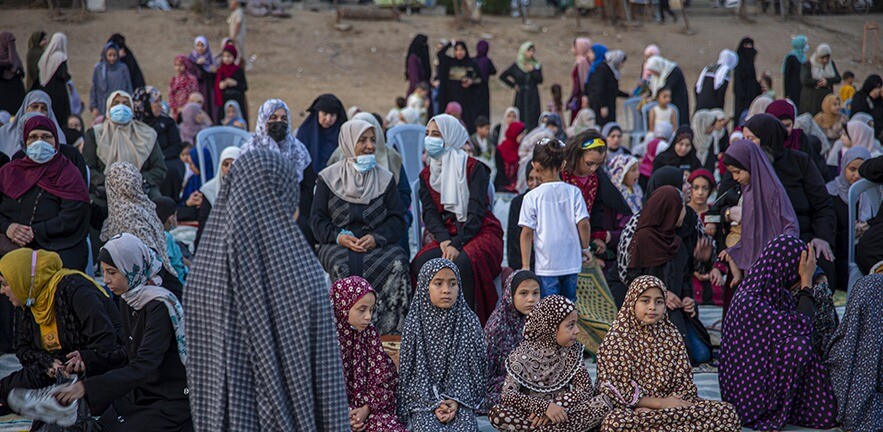Improve information flows and build cooperation between stakeholders in the health sector in Gaza to address continuing humanitarian needs, says report from the Centre for Business Research at Cambridge Judge.

A new report on health care in Gaza by the Centre for Business Research at Cambridge Judge Business School highlights the formidable challenges facing the sector and sets out a pathway for policy makers to follow.
The report by CBR Research Fellow Dr Mona Jebril calls for creating a trusted technical collaboration platform to encourage the exchange of information to improve health care, as well as coordination of data production, resources, and expertise among the various health providers in Gaza. The report – entitled “The Political Economy of Health in the Gaza Strip (Occupied Palestinian Territory)” – also recommends unifying administrative elements of the Palestinian Ministry of Health, including salaries and employment scales.
“Palestinians’ right to health is highly politicised,” the report says. “The health sector in Gaza has emerged within the constraints and agendas of several occupations and internal conflict. Consequently, the Gaza health system has been shaped by a context of ‘de-development’ – a past and present that is characterised by fragmentation, negligence, marginalisation and dependency, and which continues to affect the people of Gaza.
The 138-page report says that owing to this complex legacy, it is difficult to achieve active collaboration among all stakeholders and political powers, but deadlock in achieving a long-term solution should not hold back measures that could be taken to improve health care in the short term, which also include:
- Developing a national manifesto of vision for reform, supervised by a unified Palestinian Ministry of Health
- Budgeting for the health sector in a practical way that takes into account disruptions in this area of conflict
- Limiting duplication of projects and services
- Updating a legal framework for the health sector that is based on modern standards of health consistent with the Universal Health Coverage and Sustainable Development Goals.
Dr Mona Jebril did her undergraduate work at Al Azhar University of Gaza, and later won a Gates Cambridge scholarship to study for a PhD in Education at the University of Cambridge, as their first scholar ever from the Gaza Strip and the second from Palestine. She focused on the impact of occupation and conflict on higher education in Gaza and how this is affected by the shifting socio-political context in the Arab world.
In a Foreword to the report, the Director of the Centre for Business Research, Professor Simon Deakin, said: “This is an important report, in terms of its subject-matter, its approach, and its findings.
“Health is a public good, and how well it is delivered depends on there being an effective public space. In contexts affected by conflict, that cannot be taken for granted. In the case of Gaza, it is not simply the physical consequences of war and occupation that have to be taken into account. In an unstable geopolitical environment, organisations and institutions are constantly being undermined.
“The report is the result of intensive research and analysis. The author has leveraged her knowledge of the Gazan situation with rare access to actors at all levels. Through in-depth interviewing, she captures the lived experiences of policy makers, officials and carers. Their voices, normally beyond the reach of an external audience, can now be heard.
“There is a dearth of systematic research on Gazan society and institutions. This report is a dispassionate account, which is sobering in its implications. In detail, and with evidence of a kind which is all too infrequently available, it offers a diagnosis, and the beginning of a way forward, for a situation which those who read it will surely regard as unsustainable.”
This research is funded through UK Research and Innovation as part of the Global Challenges Research Fund; Research for Health in Conflict in the Middle East and North Africa (R4HC-MENA) project, grant number ES/P0101962/1.


